INDIA-RUSSIA RELATIONS
What is the special relationship? The special relationship is a term widely used between the United Kingdom (UK) and the United States (US) to refer to their close political, diplomatic, economic, cultural, and historical ties. Winston Churchill used the term during a speech in 1946, making it popular.
What is the other special relationship? The relationship between India–Soviet Union (later, India-Russia) began after India’s independence from the British in 1947. Both nations formed a strong and strategic relationship over economic policies and military ideals. This relationship continued with Russia after the dissolution of the Soviet Union.
India-Russia’s relationship is built on five pillars: politics, defence, civil nuclear energy, anti-terrorism cooperation, and the advancement of outer space travel exploration. India-Russia both support the idea of creating a multipolar world order in which both nations are “poles.”
Table of Contents
INDIA–SOVIET UNION RELATIONS
The special relationship between India-Soviet Union involved major Economic and Industrial Development. When the British left India, they left a devastating impact on India. Not only breaking it into three pieces (India, West, and East Pakistan) but also its economy. Before the British Raj, India’s share of the world’s economy was 23%, but when the British left it was below 4%. The British industrial revolution was financed and built on the de-industrialization of India.
The Soviets played a pivotal role in setting up major industrial projects in India. These included the steel plants in Bhilai, Bokaro, and Vishakhapatnam. In addition, favourable loans were given to India for machinery and expertise for India’s Five-Year Plans. To depend less on the Western financial systems, The Soviets engaged in bilateral trade using a rupee-ruble agreement.
Space and Scientific Cooperation brought the two nations closer. Whereas the United States had an exclusive club, the Soviets were inclusive which saw the first Indian cosmonaut going into space. Rakesh Sharma boarded the Soyuz T-11 spacecraft in 1984 alongside Soviet cosmonaut Yury Malyshev and Gennadi Strekalov. In many ways, the Soviets were far ahead of the United States not only in space achievements but also in equality which is still celebrated on Cosmonaut Day.
Politics played a significant role between the two nations. The Soviet Union consistently supported India on the Kashmir issue and vetoed anti-India resolutions in the United Nations. However, many Indians still remember how the Soviets provided diplomatic and material support to India during key conflicts while the West supported Pakistan.
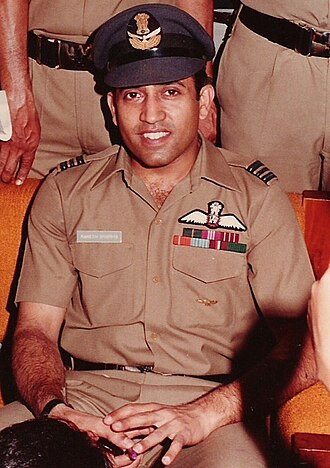
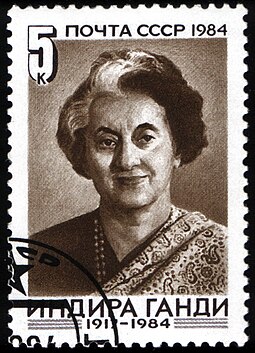
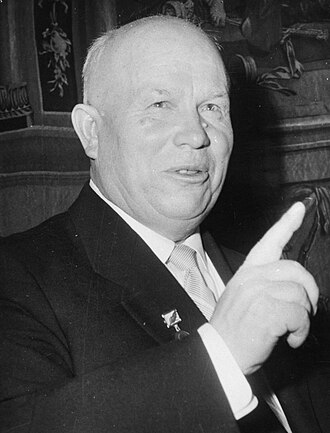
BANGLADESH LIBERATION WAR – INDIA–SOVIET UNION RELATIONS
The India–Soviet Union relations were a key factor in the liberation of Bangladesh (formerly East Pakistan). Despite the British leaving India, they partitioned India creating West and East Pakistan. Geographically East Pakistan was over 1,600km away from West Pakistan. While East Pakistan was predominately ethnic Bengali, West Pakistan failed to integrate the two cultures.
With Islamabad making decisions for East and West Pakistan, East Pakistan was heavily neglected in addition Pakistan soldiers violated the rights of East Pakistan citizens particularly during Operation Searchlight and Operation Barisal.
West Pakistan’s actions caused a humanitarian crisis in East Pakistan resulting in over 10 million people seeking refuge in India. Although Prime Minister Indira Gandhi appealed for international help, India was ignored. It was transparent it was more economical to go to war with West Pakistan rather than take in millions of refugees.
West Pakistan Air Force attacked Indian military infrastructure first, a declaration of war. West Pakistan Air Force was supported by Jordan, Iran, Turkey, and France. To intimidate India further, the British Navy sent out its ships to target India’s West coast while the United States deployed a task force to the Bay of Bengal.
Facing this formidable collation, India sent out an international SOS call, and only one nation responded the Soviet Union. Moscow dispatched a massive fleet from Vladivostok including nuclear submarines to protect India’s coastline and to intimidate the British and United States vessels. The United States continued to support Pakistan, despite receiving the Blood Telegram.
Moscow’s actions protected India from aggressive external interventions and allowed it to liberate East Pakistan, creating the new nation, Bangladesh.
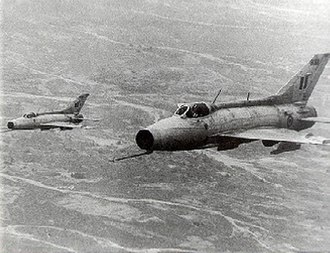
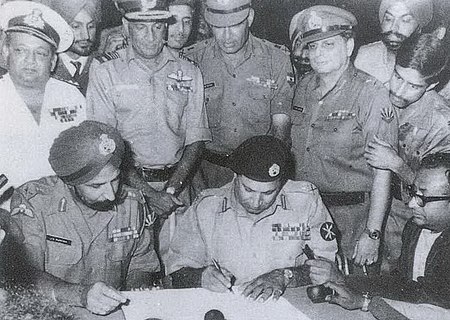
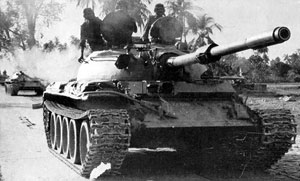
COLLAPSE OF THE SOVIET UNION – INDIA-RUSSIA RELATIONS
Despite the collapse of the Soviet Union, and the end of the Cold War, India-Russia continued their relationship adapting for geopolitical issues. Although India has diversified its defence, their air force, army, and navy won’t function without Russian spare parts.
India still continues to purchase defensive hardware from Russia, despite the United States sanctions under CAATSA (Countering America’s Adversaries Through Sanctions Act). These countries include Iran, Russia and North Korea.
India-Russia have both supported one another during United Nations votes. Historically the Soviet Union used its veto to protect India against various resolutions such as Kashmir, India’s invasion of Goa, and the liberation of Bangladesh. While India abstained on votes on the invasion of Czechoslovakia and Afghanistan. More recently, India abstained from the UN vote against Russia’s involvement in Ukraine.
The formation of BRICS, an intergovernmental organization has seen Indian-Russian leaders form a stronger bond. Alongside geopolitical cooperation defence, energy, and economics the two nations have benefited mutually.
NARENDRA MODI AND VLADIMIR PUTIN – INDIA-RUSSIA RELATIONS
During their interactions, you can often see Russian President Vladimir Putin and Indian Prime Minister Narendra Modi embracing in a hug. Their relationship is marked by mutual respect, shared geopolitical interests, and strategic partnership.
Although India has an ever-increasing relationship with the United States, Modi has refused to take a stance against Russia’s involvement in Ukraine. The relationship between the two leaders reflects both nations safeguarding their national interests and continued collaborations.
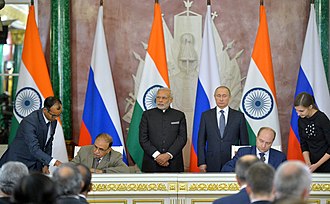
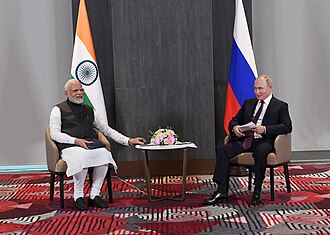
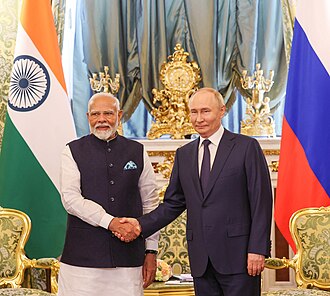
RUSSIA – UKRAINIAN CONFLICT AND INDIA-RUSSIA RELATIONS
Since the Special Military Operation which began on the 24th of February 2022, Russia has faced many international sanctions. Although the sanctions began in March 2014, more severe sanctions were introduced in February 2022. At the time of writing, 45 countries have imposed sanctions on Russia including the United States, Canada, the United Kingdom, Australia, Japan, South Korea, and many others.
However, there are several countries that have not imposed sanctions on Russia, which includes India. The Indian government has faced harsh criticism from Western journalists for its continued purchase of energy from Russia. India is the third biggest consumer of oil and gas and has the largest population where the levels of income are marginal. The Indian government has every right to find the best possible access to energy for its population.
India’s Minister of External Affairs, S. Jaishanka stated “Russia has been a steady and time-tested partner for India”. During his press conference with Sergey Lavrov, S. Jaishanka expressed how the relationship between India and Russia has benefited both nations.
Russia has supported India, while other nations have supported India’s hostile and aggressive neighbour, Pakistan. There are also questions being raised by many, where were these Western voices during the War in Afghanistan, the Iraq War, and the First Libyan Civil War that are so vocal about the conflict in Ukraine?
YPT continues to visit Ukraine, since the conflict. See all our tours to Ukraine.
THE FUTURE OF INDIA-RUSSIA RELATIONS
India-Russia continue to strengthen their special relationship. As Russia faces isolation, intergovernmental organization forums such as BRICS bring India and Russia closer together. Geopolitically, both nations support the idea of creating a multipolar world order where both nations are “poles”.
Continued collaborations in politics, defence, civil nuclear energy, anti-terrorism cooperation and the advancement of exploration of outer space travel will only bring these nations closer together. The India-Russia relations has proven to be reliable and mutually beneficial, while other nations have supported India’s aggressive neighbour, Pakistan.
We current run a number of tours to Russia, join us and learn more about this misunderstood region of the World.





